Climate Change Progress 2024: Key Milestones
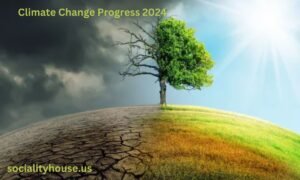
What is Climate Change Progress 2024? How many achievements has it achieved till now? How many challenges are there, and what are its future targets?
In today’s era, climate change has become a huge issue. And everyone is trying their best to play a positive role in reducing climate change, be it individuals, organizations, or industries.
What is Climate Change?
Climate change means a long-term change in the weather of a place or the world, especially the heat, cold, wind, storms, rain, etc. First, climate change is measured in many years or decades.
But now the situation has changed, and climate change has become very rapid. Now, each year is different from the other. Due to this, scientists are very worried. And they are terming the coming days as very dangerous.
What is Climate Change Progress 2024?
Climate change progress in 2024 means what has been done so far to reduce climate change?
How much achievement have we made in this, and what challenges have we faced?
What plan has been made for the future?
How will we deal with the challenges that are coming before us?
In assessing climate change progress in 2024, it has to be taken into account how much awareness has come up to now, how common people are using resources without any mercy, and how much wood cutting has been reduced.
All the dangerous gases from industries, transport, etc. that are getting into the air and destroying our ecosystem are contributing to climate change, which is what we have been doing until now. How can the emission of gases from greenhouses be reduced?
Related: Dorsten vs Fresno Pollution: Comparing Air Quality
Climate Change Progress 2024 Achievements
Everyone knows the kind of situation climate change has created, and various forums know its importance. In this regard, some achievements have been made, which have been mentioned below;
Net-Zero Targets
A net zero target means stopping the emission of greenhouse gases like co2 hydrogen, etc., from greenhouses. These gases destroy our ecosystem and play a very important role in climate change.
Net zero targets should be implemented on a national level. In this corporations, industries and countries should make a commitment that this target should be achieved by 2050 or before that.
Now, new countries are also joining this, such as Brazil and Indonesia. These countries have committed to achieving the net zero target by 2050.
Renewable Energy
Energy is of great importance in climate change, and the problem of climate change can be solved through this. The most important resources for producing energy are coal, petroleum, diesel, etc.
The most important reason for the amount of gases emitted from greenhouses or the pollution caused by vehicles is these energy resources.
Just as cars run on petrol, fuel is needed to produce electricity. Thus, coal is the biggest resource of CO2.
According to the experts, it is quite clear that if we want to solve the problem of climate change, then it is necessary that by 2050, we use solar, wind, and electricity 100% instead of these resources and eliminate the use of fossil fuels.
Therefore, it is necessary that we eliminate dependency on fossil fuels and bring alternative sources that are sustainable, clean, and clear into use.
Carbon Capture Technology
Experts are working on many ideas to reduce CO2, but the most important one is carbon capture and storage. How can CO2 be mined from other resources like bare industries, separated from transportation, and then stored?
CO2 can then be used separately and bought and sold. Capturing and storing CO2 is possible in big industries like power plants, oil refineries, etc. It can also be captured from the open atmosphere.
Sustainable Agriculture
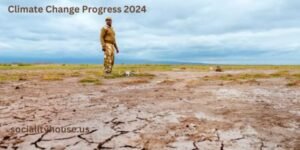
Sustainable agriculture is a system in which the present needs are fulfilled, and along with that, the future needs are fulfilled, and the environment is friendly. Do not create reasons for climate change and global warming. Also, improve the lives of farmers.
In this you have to maintain such agriculture in which there is no compromise on the future. Like you use machinery that runs on fossil fuel, and makes reasons for climate change. In this way the chemicals that are used like weedicides, pesticides etc. harm the ecosystem.
In this way instead of chemicals, you have to use home made natural remedies and make more use of labor, which is a sustainable way. This will ensure that your present needs are met without any compromise in the future.
Challenges
There has been a lot of progress in reducing climate change and global warming, but the goals have not yet been achieved. We are facing some challenges which have been put down;
Global Policy Alignment
Many individuals, communities, and countries are working on global warming and climate change, but we need a grand alignment at the international level. It will be very tough to achieve the goals until all these countries come together and make standard rules and regulations.
Each country has different rules, and some are not working on it. Hence, there is a lack of global policy alignment.
Efforts are made for global policy alignment, but there are challenges like scientific uncertainty and political issues in different countries. There is the issue of coordination etc.
Financing Gaps
Another big challenge is financing gap. Developed countries can work on climate change and global warming but it is very difficult in poor and under developed countries.
First of all, in rich countries, people can easily earn money for themselves and then worry about global warming. Sustainable methods are adopted in rich countries and not in poor countries.
Secondly here there is the issue of funds. Here the government is not so self sufficient. Poor governments always have a shortage of funds.
Adaptation and Resilience
One of the major issues of poor countries is that their share in global warming is very less but poor countries are affected. Like rains at wrong time, floods, sea level rising, no rains at the right time.
Due to this, it becomes difficult to work there. Because those people are already facing a lot of problems. Thus, to understand climate change and work on it, investment is needed first in poor countries.
Fossil Fuel Uses
Work is being done rapidly on the alternative to fossil fuels. However, despite this, some countries, incredibly underdeveloped and poor countries, still depend on fossil fuels—especially coal, which produces the most CO2.
Even now, many vehicles and industries in these countries run on fossil fuels. Therefore, until the issue of fossil fuels is resolved, the issue of climate change cannot be solved.
Climate Change Progress in 2024 and Future Planning
Until all governments, organizations, industries, and individuals are united and make a common commitment to climate change progress, it will not be possible to gain control over the climate change process. We can achieve small achievements, but for major success, we need to be united on an international platform.
Some plans and ideas have been given below; if they are implemented, then they will be a significant success;
Accelerated Innovation
Accelerating innovations means accelerating new ideas and development or bringing significant positive changes to the innovations we already have momentum for until our needs are fulfilled and we gain advantages.
To stop the climate change process we will have to work on such innovations which are clean and environment friendly so that there is no risk of causing any harm to the climate.
There is a need to work on energy resources, electric cars etc. In this way industries should also be put on clean resources. There is a need to work in this field and innovations as to how the needs of big industries can be fulfilled so that their dependency on fossil fuel can be ended.
Green Economy Growth
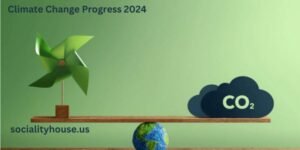
We can define a Green economy in such a way that it includes projects that have minimum carbon emission and are environment friendly. All industries and economies should be socially inclusive and have a pleasant atmosphere. There should not be any such production or job that has the risk of harming the environment or the ecosystem.
The target of the climate change programme is to shift industries to a green economy by 2030. In this way, the green economy will be a significant part of the international economy by 2030.
Public Awareness
Public awareness is critical to gain control over the issue of climate change. Until the individuals do not realize how much harm the things they are doing are causing to their next generation, it is not possible to gain control over the process of climate change.
The way people use resources, wood cuttings, waste water, garbage and sewage, burning, polluting water resources, wasting food, etc. etc. Public awareness is necessary to stop all these things.
Global Cooperation
Global Cooperation target is included in the future plan. In the same way, in 2024, the United Nations will hold a conference to find a solution to the problem of rapid climate change and will provide a platefarm for the EXPERTS. In this way, countries should keep their bad relations aside and make international alignment and commitment so that everyone can work together for climate change.
FAQs
What are the disadvantages of climate change?
The biggest effect is global warming. Heat will increase, sea levels will rise, it will not rain on time, and there will be floods and extreme weather.
What are the factors of climate change?
There are many factors for this but some important factors are wood cutting, fossil fuels, transportation, industries CO2 and less public awareness etc.
How can we solve this issue?
To find a solution to this, first of all, we have to end fossil fuel dependency because the big sources of CO2 are fossil fuels like coal and petroleum products. We should work on projects like solar, wind, and electricity. We should plant forests. We should adopt GREEN ECONOMY, SUSTAINABLE INNOVATIONS AND INDUSTRIES, and PUBLIC AWARENESS.
Conclusion
What is Climate Change Progress 2024? Climate change means a change in the atmosphere, environment, rain, heat, cold, and wind of an area, country, or world. These changes used to happen after a long time, but now they are happening rapidly. The coming year is different from the previous one.
For this reason, if the process of climate change is not slowed down, the coming year will be terrible, and the world will not be able to live. In this connection, some achievements have been achieved, but for the final success some challenges are faced. For this, dependency on fossil fuels must be reduced till the emission of CO2 is reduced as much as possible.
Investments should be made in clean resources like electricity and solar system, wind etc. New innovations should be made in this field and awareness should be raised among all the people so that we can reach our target and control climate change.
For more interesting, unique, social, and informational, visit our website, socialityhouse.us. Discover more amazing articles that might shock you or, who knows, amaze you. Visit us now. If you have any problem, you can contact us for further information.

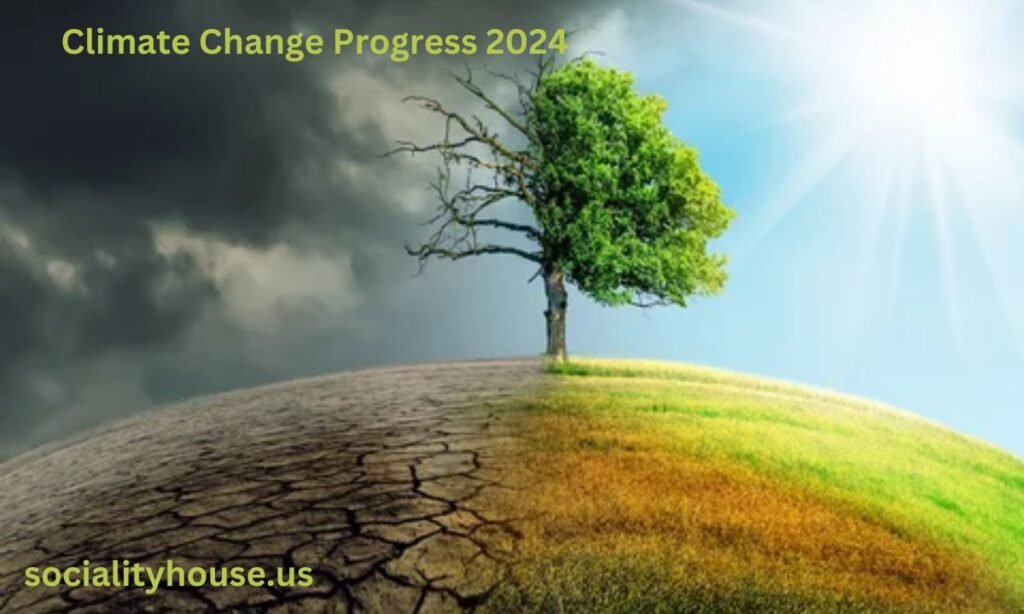

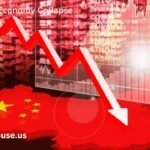
Climate change is indeed a very big problem and it’s main cause are humans
In 2024, global efforts in combating climate change show meaningful progress, yet there’s a clear urgency for accelerated action. Many countries have expanded renewable energy production and seen significant shifts toward electric transportation, signaling positive steps toward reducing emissions. However, challenges persist, especially as some regions still struggle with dependency on fossil fuels and adapting to intensifying extreme weather. The progress made this year highlights that while advancements are encouraging, stronger global cooperation and policy commitment are essential to meet climate targets and mitigate the growing impacts of climate change.
In 2024, climate progress shows mixed results: renewable energy growth and improved policies mark advances, yet emissions challenges persist, especially in emerging economies still reliant on fossil fuels.
In 2024, climate change progress is mixed. Key achievements include growth in renewable energy, especially solar and wind, and technological advances in storage and carbon capture. The U.S., EU, and China have set ambitious emissions targets and implemented stricter regulations, though economic pressures and reliance on fossil fuels continue to challenge developing economies. Despite these efforts, global emissions remain high, and the transition to net-zero requires accelerated action and stronger international cooperation.